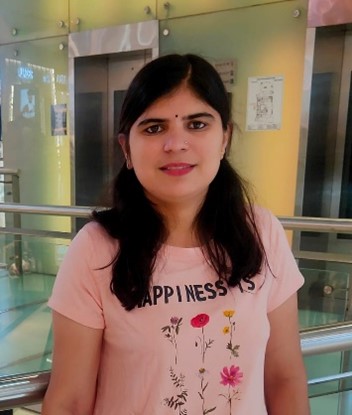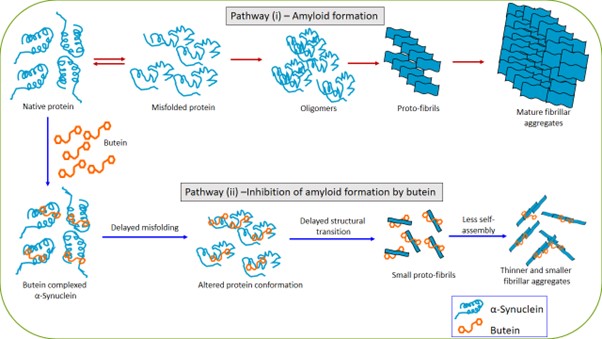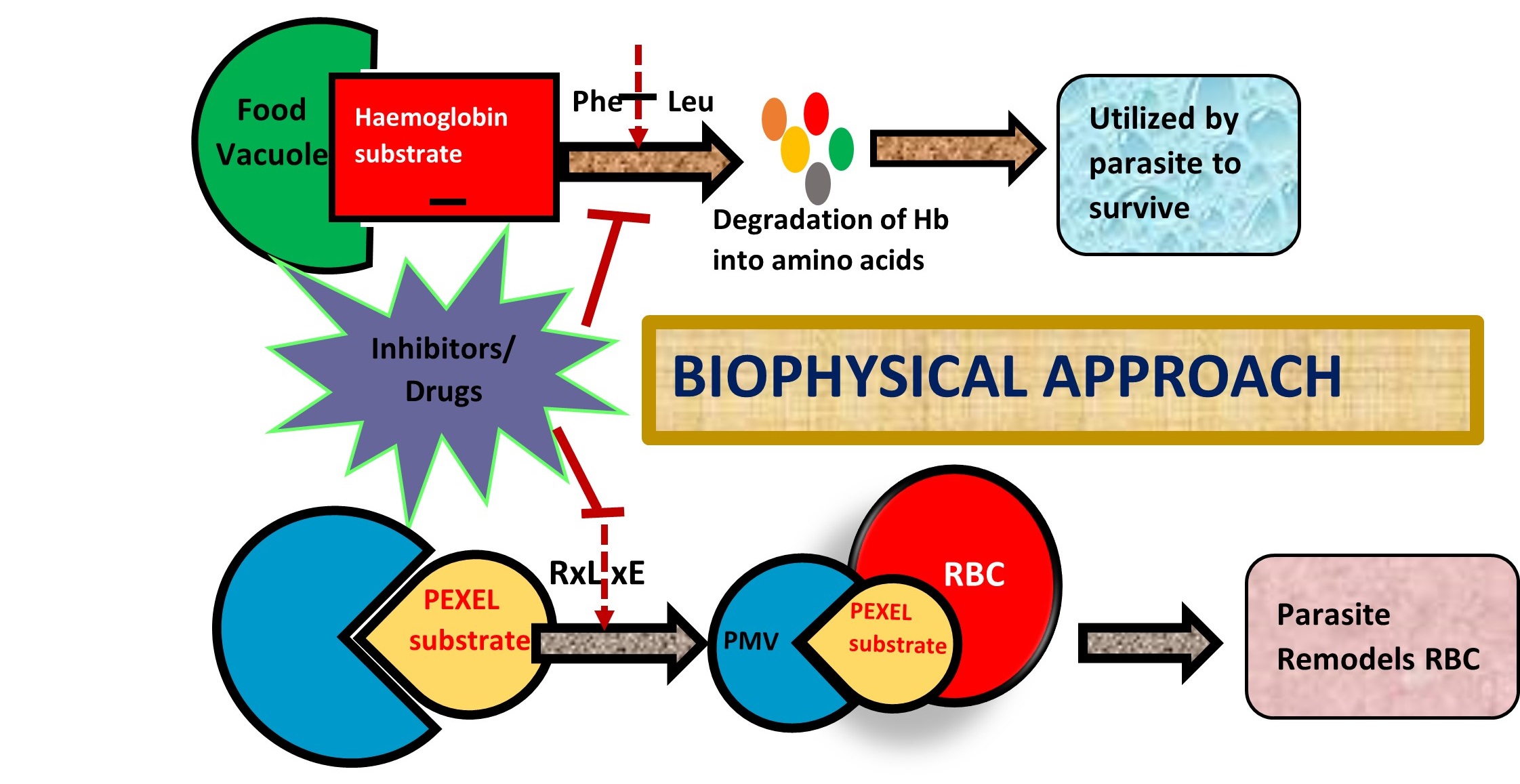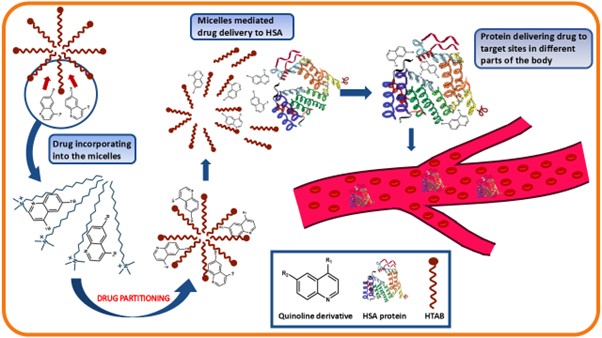



Reader
Publications
Group Members

JRF

JRF

JRF

Past lab members
Research
The main focus of our laboratory is to understand the mechanism of inhibition of protein fibrillation related neurodegenerative diseases, to enhance the efficiency of drug delivery using various drug delivery systems and prevention of malaria by inhibiting the catalytic activity of parasitic enzymes using a combination of calorimetric, spectroscopic and microscopic methods.
(i) Qualitative and quantitative aspects of prevention of neurodegenerative diseases: Understanding the mechanism of protein aggregation and its prevention is the basis of development of therapeutic strategies for neurodegenerative diseases. We have made an attempt to understand the nature of interactions of a wide range of inhibitors with different stages of protein aggregation by using a combination of isothermal titration calorimetry, differential scanning calorimetry, fluorescence spectroscopy, and transmission electron microscopy. Such biophysical studies with a wide range of inhibitors will help in establishing structure-function-inhibitory property relationships which will provide scientific basis for the development of new generation of phytopharmaceuticals which can be used alone or in combination with other drugs.

(ii) Physico-chemical insights into the mechanism of inhibition of plasmepsins activity
Malaria is one of the oldest infectious diseases and affecting millions of people worldwide every year. The main aim of this project is to understand the physicochemical insights into the mechanism of inhibition of activity of parasitic aspartic protease plasmepsins (PMs) by natural and synthetic inhibitors. PMs a group of enzymes, are key enzymes in the life cycle of malarial parasites and inhibition of its activity leads to parasitic death. Our lab is focused on studying the effects of a wide range of inhibitors against the catalytic activity of food vacuole and non-food vacuole PMs using various biophysical tools.

(iii) Drug delivery systems: Thermodynamic and biophysical insights

We are also addressing the important need for a quantitative understanding of the partitioning/incorporation of drugs in the drug-delivery system in terms of thermodynamics of interactions, and then correlating thermodynamic parameters with the molecular features. The main objective of this project is to unravel the partitioning/incorporation of various drugs in the different layers of drug carrier molecules on the basis of the molecular properties and the interactions involved between the drug-carriers and various drugs. We also aim to understand the modulation of the binding affinity of different types of drugs with the carrier/target proteins using various drug delivery vehicles. Such studies are essential for the design of suitable drug carrier vehicles for successful drug delivery.
UM-DAE Centre for Excellence in Basic Sciences
Nalanda Building, University of Mumbai, Vidyanagari, Mumbai 400098, India.
NEST/Outreach:+9186570 26481
NEST/Admissions:+9186570 26482
General Enquiries: info@cbs.ac.in
Admissions Queries:admissions@cbs.ac.in
Web: https://cbs.ac.in